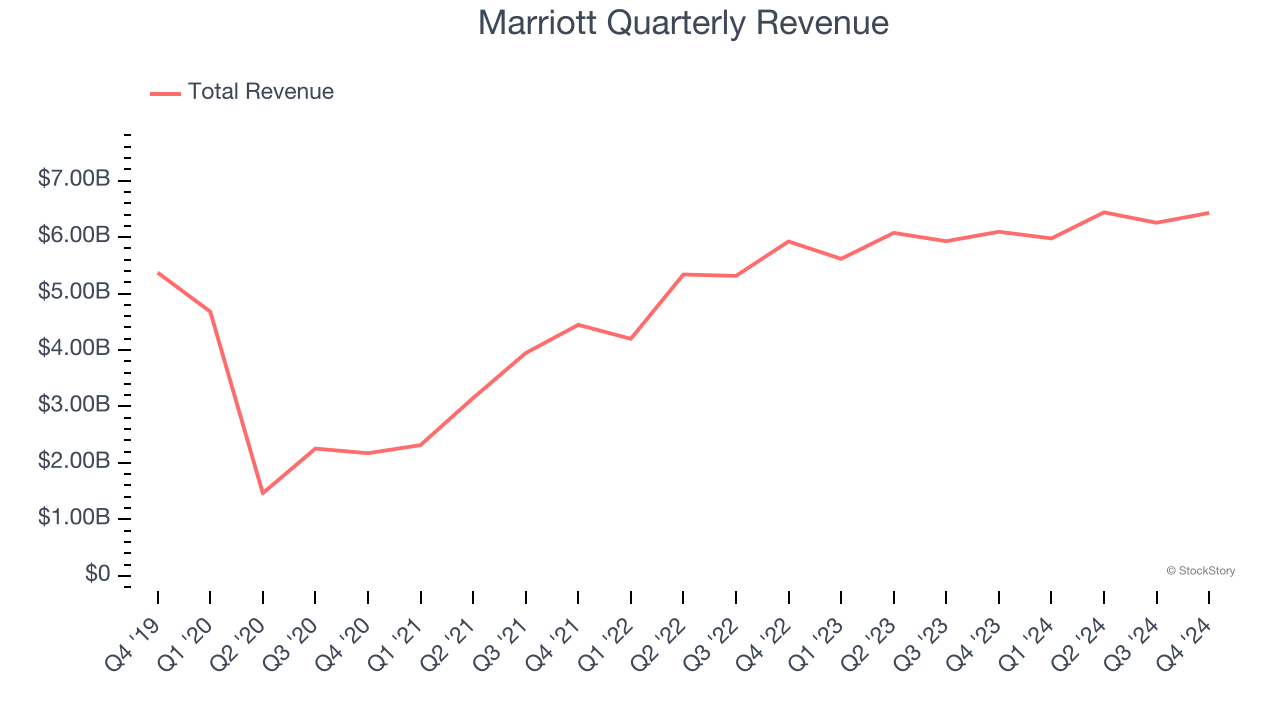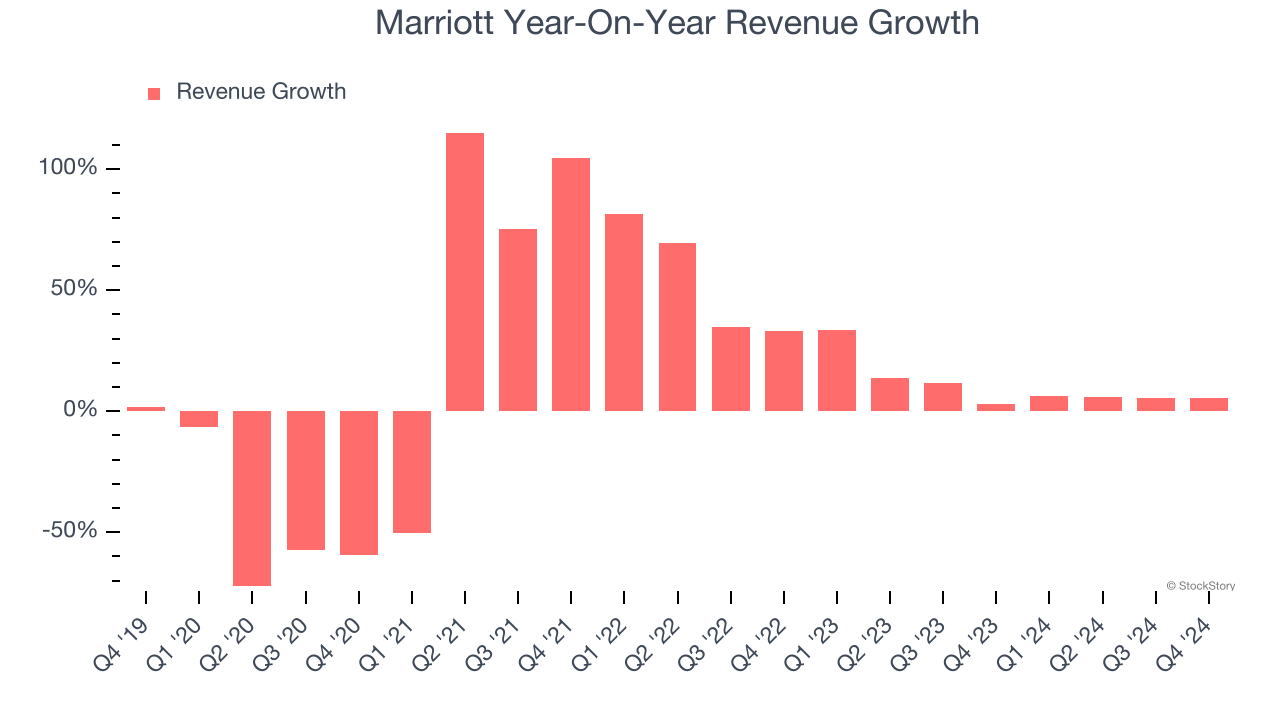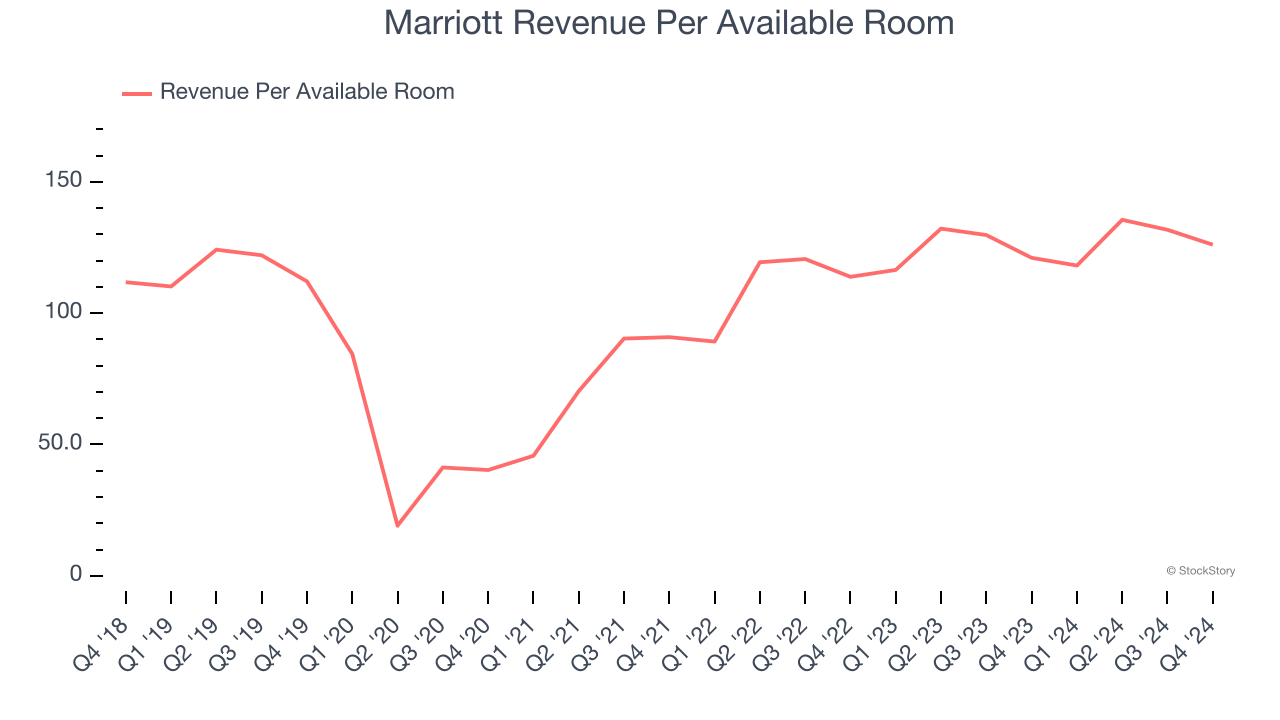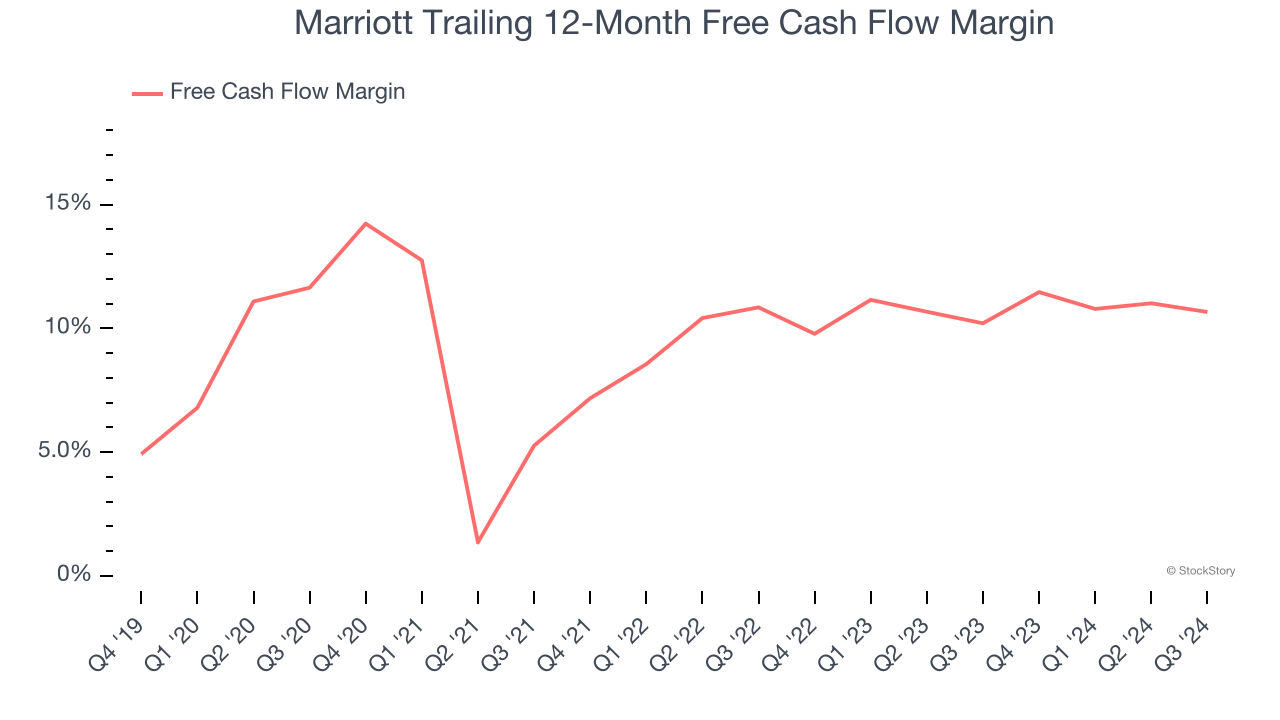
Global hospitality company Marriott (NASDAQ: MAR) reported Q4 CY2024 results exceeding the market’s revenue expectations, with sales up 5.5% year on year to $6.43 billion. Its non-GAAP profit of $2.45 per share was 2.7% above analysts’ consensus estimates.
Is now the time to buy Marriott? Find out by accessing our full research report, it’s free.
Marriott (MAR) Q4 CY2024 Highlights:
- Revenue: $6.43 billion vs analyst estimates of $6.39 billion (5.5% year-on-year growth, 0.6% beat)
- Adjusted EPS: $2.45 vs analyst estimates of $2.38 (2.7% beat)
- Adjusted EBITDA: $1.29 billion vs analyst estimates of $1.26 billion (20% margin, 2.1% beat)
- Adjusted EPS guidance for the upcoming financial year 2025 is $10.00 at the midpoint, missing analyst estimates by 5.9%
- EBITDA guidance for the upcoming financial year 2025 is $5.37 billion at the midpoint, in line with analyst expectations
- Operating Margin: 11.7%, in line with the same quarter last year
- RevPAR: $126.05 at quarter end, up 4.1% year on year
- Market Capitalization: $84.6 billion
Anthony Capuano, President and Chief Executive Officer, said, "Marriott achieved excellent results in 2024, as we delivered best-in-class experiences that helped drive strong demand for our industry-leading portfolio of brands. Full year global RevPAR rose 4.3 percent and, with record gross room additions of over 123,000, net rooms grew 6.8 percent to over 1.7 million rooms worldwide at year-end.
Company Overview
Founded by J. Willard Marriott in 1927, Marriott International (NASDAQ: MAR) is a global hospitality company with a portfolio of over 7,000 properties and 30 brands, spanning 130+ countries and territories.
Travel and Vacation Providers
Airlines, hotels, resorts, and cruise line companies often sell experiences rather than tangible products, and in the last decade-plus, consumers have slowly shifted from buying "things" (wasteful) to buying "experiences" (memorable). In addition, the internet has introduced new ways of approaching leisure and lodging such as booking homes and longer-term accommodations. Traditional airlines, hotel, resorts, and cruise line companies must innovate to stay relevant in a market rife with innovation.
Sales Growth
A company’s long-term sales performance can indicate its overall quality. Any business can put up a good quarter or two, but many enduring ones grow for years. Unfortunately, Marriott’s 3.7% annualized revenue growth over the last five years was sluggish. This was below our standard for the consumer discretionary sector and is a tough starting point for our analysis.

We at StockStory place the most emphasis on long-term growth, but within consumer discretionary, a stretched historical view may miss a company riding a successful new property or trend. Marriott’s annualized revenue growth of 9.9% over the last two years is above its five-year trend, but we were still disappointed by the results. 
We can dig further into the company’s revenue dynamics by analyzing its revenue per available room, which clocked in at $126.05 this quarter and is a key metric accounting for daily rates and occupancy levels. Over the last two years, Marriott’s revenue per room averaged 8.1% year-on-year growth. Because this number is lower than its revenue growth, we can see its sales from other areas like restaurants, bars, and amenities outperformed its room bookings. 
This quarter, Marriott reported year-on-year revenue growth of 5.5%, and its $6.43 billion of revenue exceeded Wall Street’s estimates by 0.6%.
Looking ahead, sell-side analysts expect revenue to grow 5.5% over the next 12 months, a deceleration versus the last two years. This projection doesn't excite us and suggests its products and services will face some demand challenges.
Unless you’ve been living under a rock, it should be obvious by now that generative AI is going to have a huge impact on how large corporations do business. While Nvidia and AMD are trading close to all-time highs, we prefer a lesser-known (but still profitable) stock benefiting from the rise of AI. Click here to access our free report one of our favorites growth stories.
Cash Is King
Although earnings are undoubtedly valuable for assessing company performance, we believe cash is king because you can’t use accounting profits to pay the bills.
Marriott has shown decent cash profitability, giving it some flexibility to reinvest or return capital to investors. The company’s free cash flow margin averaged 11.2% over the last two years, slightly better than the broader consumer discretionary sector.

Key Takeaways from Marriott’s Q4 Results
While revenue and EPS beat by small amounts, full-year EPS came in below expectations. Overall, this was a mixed quarter, and the stock traded down 1.5% to $299.60 immediately after reporting.
So should you invest in Marriott right now? When making that decision, it’s important to consider its valuation, business qualities, as well as what has happened in the latest quarter. We cover that in our actionable full research report which you can read here, it’s free.




